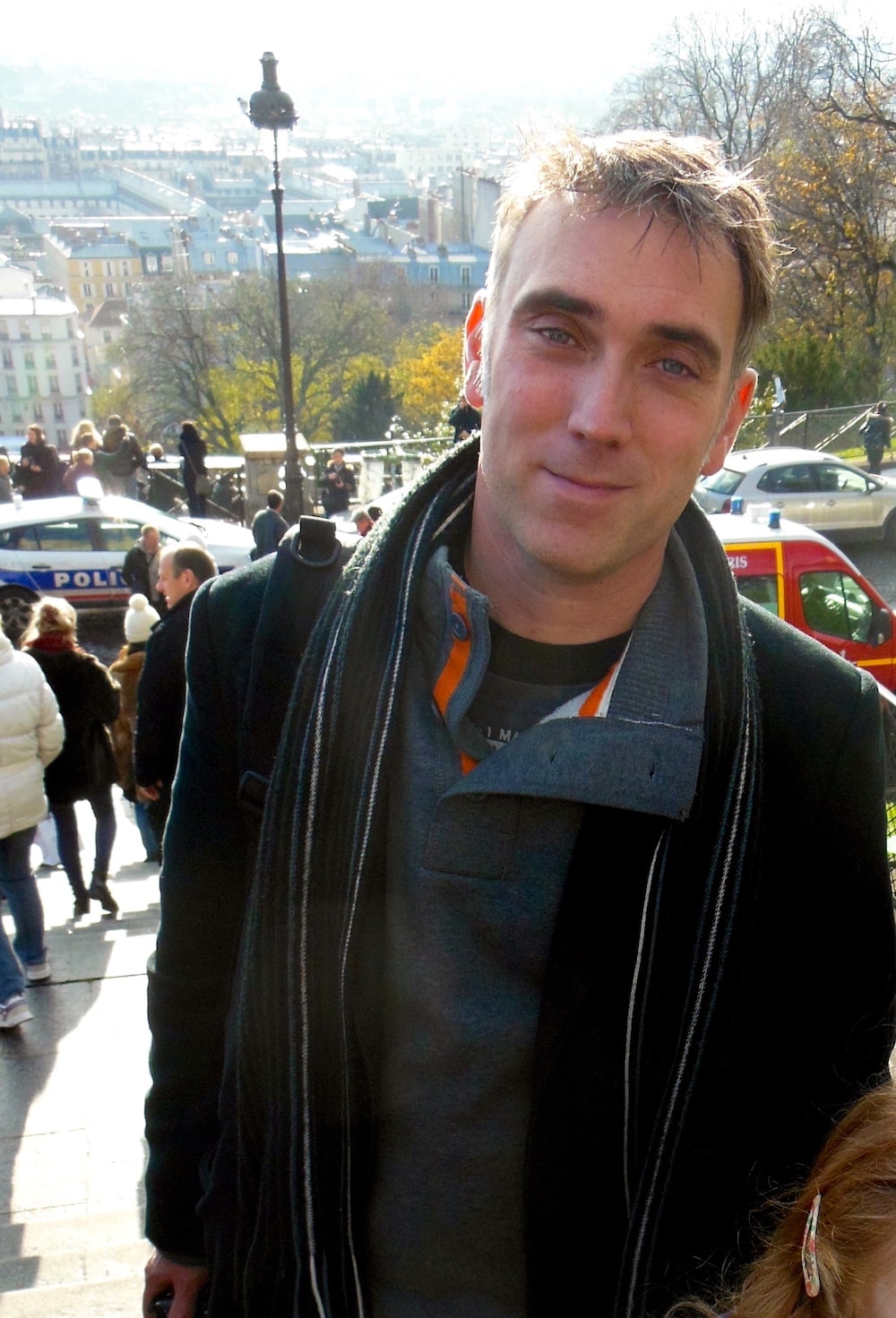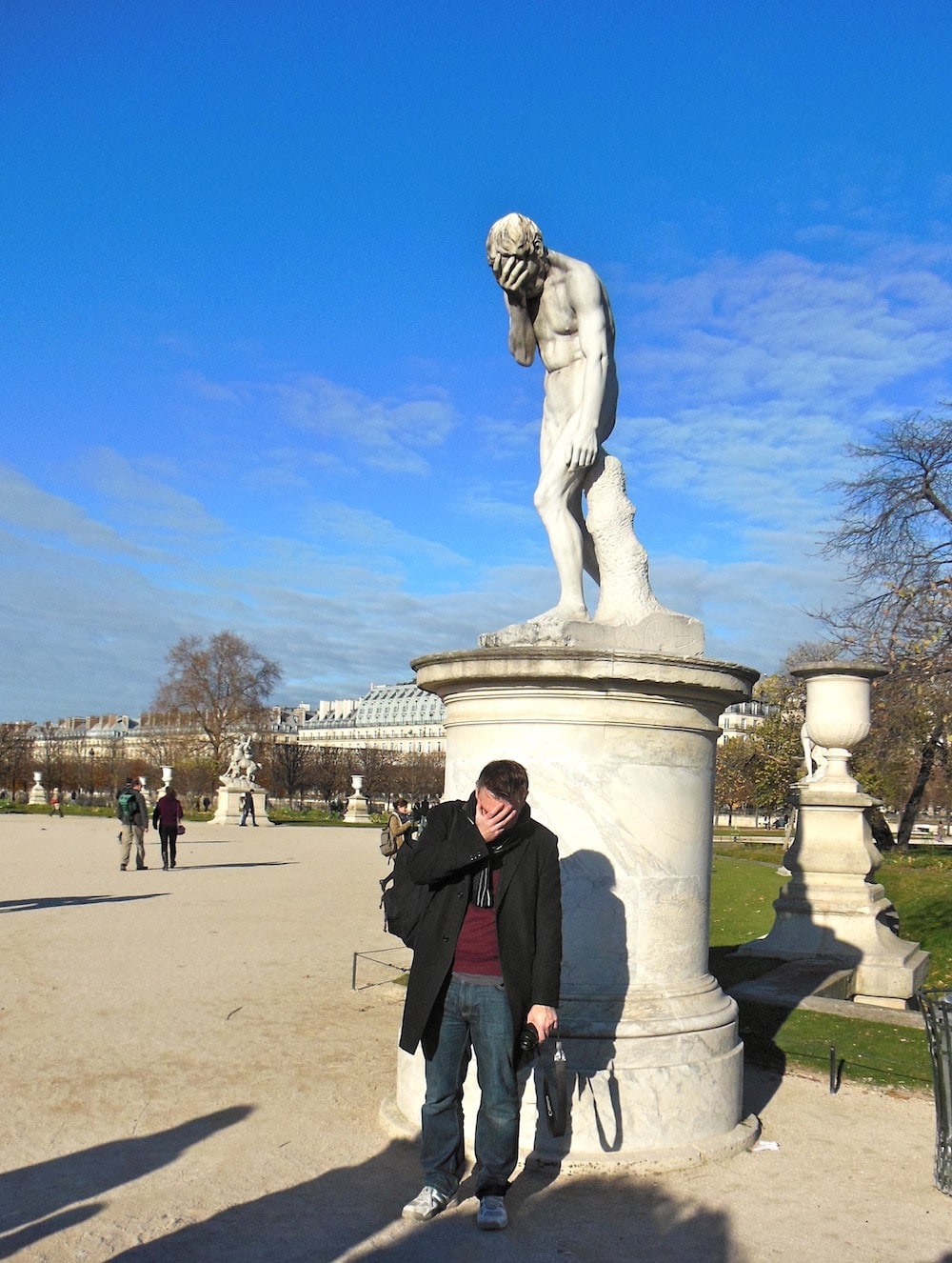
After turning 40, Phil Tysoe experienced a storm of depression. This is how he learned to cope

"You seem a little... grey."
This is the considered medical opinion of the doctor I met barely 20 minutes ago. A routine executive medical that had now veered into uncharted territory, away from the relative safety of losing some weight, cutting down the booze, and doing some exercise. You seem a little grey. I knew she didn't mean grey in a 50 shades sense either; this wasn't the prelude to nipple clamps and ill-fitting bondage gear. Not that kind of grey. Washed out. Faded. Colourless. That grey. "Have you considered anti-depressants?"
I didn’t really consider myself depressed until I hit 40. In truth, there had been plenty of warning shots before that, but I’d attributed my near constant low mood as just an expression of who I was; it was something to be lived with and tolerated, like emotional tinnitus: a background white noise of sadness. At times, I suspect I even mistook it for depth or a deeper sensitivity to the world, rather than the reality, which was just an imbalanced tendency towards melancholy. No peaks to leaven my troughs. It took me a long time to understand that sorrow carries no more intrinsic meaning than joy.
At 40, however, I tipped into a full-blown midlife meltdown and my depression, possibly realising that an abiding sense of numbness wasn’t getting it the attention it deserved, threw anxiety and panic attacks into the mix. The triggers were easy to see in retrospect: redundancy, various intrusive pieces of surgery, and, yes, that oh-my-god-I’m-40-and-facing-down-my-own-mortality period of my life. Just ordinary, banal facets of life. Perhaps that was why it was so difficult to spot as it happened.
Honesty with people was key for me in stepping back from the brink. It always felt like a risk to show vulnerability, but the reward was unexpected empathy
It had been easy to ignore the darkening skies in my 20s and 30s, but impossible to maintain the pretence once the storm broke. It’s hard to ignore leaving meetings at work, fighting for breath. Hard to ignore yet another appointment with your GP to take reassurance that the tightness in your chest isn’t an imminent cardiac arrest. Hard to ignore regular tears on the commute each day. Harder, frankly, to ignore the sudden onset of tears in almost any unguarded moment. Weeping in recognition of Frozen’s Elsa giving free reign to her full range of emotional expression in a small cinema in Gerrard’s Cross was a particular favourite. I’d love to say that my personal epiphany about my depression was some grand piece of art or a redemptive passage of music, but it may well have been a cartoon princess with abandonment issues.
I was lucky. Am lucky. I have always been able to function. I’ve always made it out of bed, always got my job done, and I know that for lots of people suffering depression or anxiety, that in itself is a struggle. To outside eyes, my functioning might even have looked like flourishing. I’ve worked for 20 years and built a solid career that pays well enough to support a leafy suburban existence and access to things like an executive medical, but I do wonder now whether my career progression was just another attempt to escape the numbness: if I get this next job, this next role, then it'll all be different. Better. Just a new way of changing my external environment but forgetting that I always dragged myself along with the change. The problem was never the external stuff. It was me.

Getting better didn’t happen on my own. I have a loving and supportive family. I think I drove a very kind therapist to distraction over several months. Talking therapies tend to be more effective when you’re prepared to talk. I doubt I patented the counselling filibuster – racking up hours talking about anything but the matter at hand – but I got pretty effective at it. I have good friends. I found new communities by joining a writing group and taking up Pilates: it’s hard to feel too down when spry retirees are pulling poses that you can only imagine persuading your aching limbs to copy.
Honesty with people was key for me in stepping back from the brink. It always felt like a risk to show vulnerability, but the reward was unexpected empathy and warmth and colour. People will surprise you. In a good way.
I did consider the anti-depressants proffered by my perceptive doctor. They made it as far as my bedside table but I never started the course. Rightly or wrongly, I still hold on to the belief that an underlying sadness is part of me and to mask that pharmacologically risks something fundamental, risks changing who I am. It seems to be one of depression’s great lies that it tells you that all you have is sadness but it’s a pervasive and persuasive untruth, difficult to give up.
I’d love to say that my personal epiphany about my depression was some grand piece of art or a redemptive passage of music, but it may well have been a cartoon princess with abandonment issues
Instead of the pills I have worked on trying to bring some colour to my grey. A mental health “Just For Men”. It does require regular reapplication or those roots start to show again. It’s a work in progress but I am much more deliberate now in what I notice in the everyday: the autumnal blaze as summer fades out, a dusky pink sky framing penciled in trees silhouetted on the horizon, a canopy of stars overhead as I turn the key in my front door. I have found release in focused tasks that leave little spare room for the mind to wander. I started to write fiction and took up guitar lessons. There won’t be an unseemly publishing bidding war or an invitation to headline Glastonbury any time soon, but patiently applying myself to creating something works for me. The process is more important than the output. I’m also kinder to myself now, less ready to listen to my own internal chatter, less ready to be dragged down by my own emotional flotsam and jetsam.
If I ever check in with that doctor again, I think she will find me a little less grey. It’s still there, still a part of me, but it’s no longer the only colour on my palette.
If you would like to talk to a professional about counselling, please visit the Counselling Directory. Further information about depression can be found on the NHS's website.

